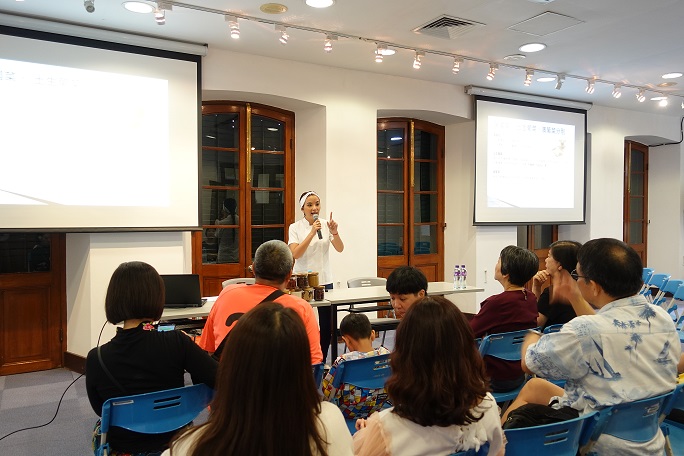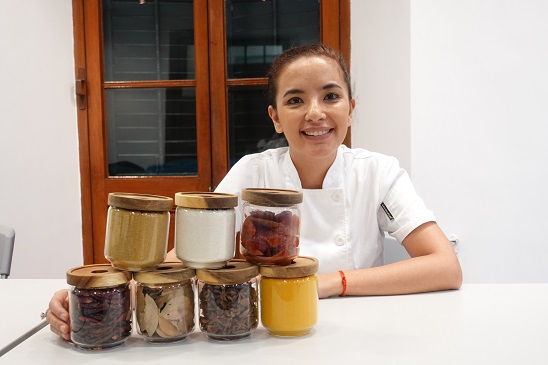TEXT_ Yan Lam PHOTO_ Yan Lam
Everyone knows about tempura, the Japanese-style deep-fired vegetables, but do you know that tempura is originated from a dish called “peixinhos da horta”, the Portuguese-style deep-fired peas? Are you feeling curious why “Portuguese chicken” can be found in almost every restaurant in Macao, yet you cannot find it in Portugal? One of the events during “Macao Library Week” delivered a themed lecture “Tasting the History and Culture of Macanese Delicacies”. We have invited Sandra Niza Barros, the owner of a new-style Macanese restaurant, as the speaker and let readers experience the cultural exchange on food. Aside from tasting the delicious Macanese food, readers could also experience the cultural integration of various cultures.
Sandra is introducing the history of Macanese cuisine in Macao
Macao-style Portuguese dish and Macanese dish are similar but not the same. The former is Portuguese dish adapted to local flavour in Macao; the latter is based on Portuguese cooking techniques, integrating various spices as seasoning and cooking skills of diverse origins. “As early as the 16th century, the Portuguese brought their olive oil, Portuguese sausages and wine to travel around the world. Therefore, Macanese food is the earliest fusion food in the world, as the Portuguese brought their food to different places during the Age of Discovery. Their food developed into the local fusion dish by integrating local flavour,” Sandra introduced Macanese dish to the participants.
In 2017, “Macanese cooking skills” was included into the “List of Macao Intangible Cultural Heritage”, which made more people started to know about Macanese food. However, the recipes of Macanese food were never handed down to outsiders, and each family has her own technique and flavour. The number of Macanese cuisine has been decreasing, as many typical local dish and food are disappearing. Grew up in Macao with Macanese food, Sandra finds it a pity to see this happening. Therefore, she started her experiment by learning cooking skills of various Macanese cuisines from her mother, grandmother, her relatives and friends, combining her own skills in the cooking, so as to create a new-style Macanese cuisine.
Sandra said she will not change the recipe, because they are based on decades of experiences of the older generations. What she could do is to present the dish with more up-to-date cooking styles to attract the attention of young people, in order to pass on the Macanese cuisine in Macao.
Sandra, a chef of new-style Macanese cuisine




